The health of our brain is dependent on our overall health. We cannot separate individual organs from the whole, no matter how complex they are.
If you have a Brain or Neurological problem it must be dealt with as an overall health issue first and foremost. The brain gets a full 25% of the blood flow from the heart. The brain requires huge amounts of energy in the form of ATP. ATP is produced in the cells’ mitochondria. Nerve cells have about the highest number of mitochondria of any cell type and this requires a tremendous amount of oxygen and other nutrients.
To maximize the brain’s chances of healing and maintaining itself at a high level we must pay proper attention to the body’s structural integrity and nutrition as well as to the 4Ms. That’s right, the best way to support brain and neurological health is to support your overall health. That means supporting microcirculation, mitochondrial function, overall metabolism, and metabolic reserves (muscle).
The details as to why get a bit complicated, but the bottom line is that the brain is an organ, a very oxygen & energy hungry and dependent organ. Likewise, nerve cells need a proper blood supply to provide the nutrients they need to function and survive. Any limitations lead to dysfunction and degeneration.
Get started on restoring and optimizing brain & neurological function with one of our programs.
Nurturing Brain and Neurological Health: Key to Thriving in Health, Performance, and Longevity
There has been a HUGE increase in degenerative neurological conditions over the past decade or so. Things like Alzheimer’s, Parkinson’s, MS, and Frontotemporal dementia have increased significantly, yet conventional medicine has no good explanation for this.
Additionally, there has also been a huge increase in a variety of ‘lesser, non-degenerative brain and neurological conditions such as anxiety, depression, brain fog, headaches, fatigue, mood changes, sleep disturbances, dizziness, forgetfulness, loss of capacity for both critical and sequential thoughts, balance and coordination issues, numbness, burning, or tingling sensations, muscle weakness, tremors, seizures, vision changes, unusual sensitivity to light, sound, touch, etc.
Conventional, ‘Modern’ Medicine may not be able to tell you why these things are increasing but WE CAN. Brain and neurological health are simply reflections of overall health. When overall health declines, so does brain function and the entire nervous system. Overall health is declining due to many factors including poor diet, an ever-increasing toxic burden, lack of proper exercise and activity, radically increased EMG pollution, damaged microcirculation, damaged mitochondria, weakened metabolic balance, and loss of metabolic reserves.
Why have our individual and collective brains and nerves been malfunctioning at alarming rates?
Because people are simply NOT healthy. Health begins with a sound structural foundation and solid nutrition including digestive efficiency. From there the circulation takes over, unfortunately, most people’s microcirculation is compromised, damaged, and restricted. That leads to damaged mitochondria and reduced energy production. Both of those lead to inefficiencies in metabolism and loss of metabolic reserves.
Brain and neurological health are paramount for overall well-being, optimal performance, and longevity. The brain, as far as we can tell, is the master control center of the body, it governs vital functions, cognitive abilities, and emotional well-being.
Trying to ‘fix’ the brain without paying proper attention to all of the major factors that impact health is like polishing a wrecked car without doing the bodywork and painting the area first.
Call us to set up an initial consultation to learn how we can assist you and your body in repairing your brain or neurological issues.

Let’s delve into the significance of maintaining brain and neurological health for overall wellness, performance, and longevity. We will also explore the potential of progressive and alternative methods, including nutritional interventions, to enhance brain function and support neurological well-being. We aim to shed light on the vital link between brain health and overall well-being.
1. Cognitive Function and Mental Performance: A healthy brain is essential for optimal cognitive function and mental performance. Cognitive abilities such as memory, attention, and problem-solving skills are critical for daily tasks and overall productivity. Maintaining brain health can contribute to improved mental clarity, focus, and enhanced learning abilities.
Scientific evidence supporting the importance of brain health for cognitive function:
- A study published in the journal Neurology emphasized that maintaining brain health through lifestyle factors (such as regular physical exercise, a healthy diet, and intellectual engagement) is associated with better cognitive performance and reduced risk of cognitive decline.
- Another study published in Frontiers in Aging Neuroscience highlighted the positive effects of dietary interventions, including the Mediterranean diet (although there are a variety of healthy eating systems that provide similar benefits) and specific nutrients such as omega-3 fatty acids and antioxidants, on cognitive function and brain health. There are many nutrients, and therefore supplements that can also provide significant benefits to the brain and nervous system beyond those discussed in this particular study.
2. Emotional Well-being and Mental Health: Brain health significantly impacts emotional well-being and mental health. A balanced neurological system promotes emotional resilience, stress management, and psychological stability. Nurturing brain health can positively influence mood, reduce the risk of mental health disorders, and support overall emotional balance.
Scientific research supporting the connection between brain health and emotional well-being:
- A review published in Frontiers in Aging Neuroscience discussed the role of nutrition in brain health and mental well-being, highlighting the potential of specific nutrients, such as B vitamins, omega-3 fatty acids, and antioxidants, in supporting emotional health and reducing the risk of mood disorders.
- A study published in the journal Nutrients emphasized the importance of a nutrient-rich diet in promoting emotional well-being and mental health, suggesting that nutritional interventions can be valuable adjuncts to traditional approaches.
3. Neuroplasticity and Longevity: Neuroplasticity, the brain’s ability to adapt and reorganize, plays a crucial role in maintaining brain health and supporting longevity. Progressive methods, including brain training exercises, mindfulness practices, and nutritional interventions, can stimulate neuroplasticity and enhance cognitive resilience throughout life.
Scientific evidence supporting the role of progressive methods in supporting neuroplasticity:
- A study published in Nature Reviews Neuroscience highlighted the potential of cognitive training programs to enhance neuroplasticity, improve cognitive function, and support healthy brain aging.
- Research published in the journal NeuroImage demonstrated the positive effects of mindfulness-based interventions on brain structure and function, promoting emotional well-being, stress reduction, and cognitive performance.
It is obvious that nurturing brain and neurological health is integral to overall wellness, performance, and longevity. By prioritizing brain health through progressive and alternative methods, including nutritional interventions, individuals can enhance cognitive function, support emotional well-being, and promote healthy brain aging. However, it is essential to consult with healthcare professionals and qualified experts to personalize approaches and ensure suitability for individual needs.
At ARTC we support brain and neurological health in multiple ways including sound dietary practices with aggressive nutritional support, proper exercise including EWOT (exercise with oxygen therapy) which may be the MOST important exercise there is for brain health, restoring proper microcirculation and mitochondrial function, helping to balance the metabolism and hormone levels, helping the body to detoxify, light therapy, and supplying regenerative stem cells.
References:
1. Livingston G, Sommerlad A, Ortega V, Costafreda SG, Huntley J, Ames D, Ballard C, Banerjee S, Burns A, Cohen-Mansfield J, Cooper C, Fox N, Gitlin LN, Howard R, Kales HC, Larson EB, Ritchie K, Rockwood K, Sampson EL, Samus Q, Schneider LS, Selbæk G, Teri L, Mukadam N. Dementia prevention, intervention, and care: 2020 report of the Lancet Commission. Lancet. 2020 Aug 8;396(10248):413-446. doi: 10.1016/S0140- 6736(20)30367-6. PMID: 32738937. (https://pubmed.ncbi.nlm.nih.gov/32738937/)
2. Norton S, Matthews FE, Barnes DE, Yaffe K, Brayne C. Potential for primary prevention of Alzheimer's disease: an analysis of population-based data. Lancet Neurol. 2014 Aug;13(8):788-94. doi: 10.1016/S1474- 4422(14)70136-X. PMID: 25030513. (https://pubmed.ncbi.nlm.nih.gov/25030513/)
3. van de Rest O, Berendsen AA, Haveman-Nies A, de Groot LC. Dietary Patterns, Cognitive Decline, and Dementia: A Systematic Review. Adv Nutr. 2015 Nov 13;6(2):154-68. doi: 10.3945/an.114.007617. PMID: 26567194; PMCID: PMC4381763. (https://pubmed.ncbi.nlm.nih.gov/26567194/)
4. Lopresti AL. The Effects of Psychological and Nutritional Interventions on Cognition and Mood in Late-Life Depression. Nutrients. 2020 Mar 19;12(3):793. doi: 10.3390/nu12030793. PMID: 32204595; PMCID: PMC7146243. (https://pubmed.ncbi.nlm.nih.gov/32204595/)
5. Gómez-Pinilla F. Brain foods: the effects of nutrients on brain function. Nat Rev Neurosci. 2008 Jul;9(7):568-78. doi: 10.1038/nrn2421. PMID: 18568016. (https://pubmed.ncbi.nlm.nih.gov/18568016/)
6. Miller MG, Thangthaeng N, Poulose SM, Shukitt-Hale B. Role of fruits, nuts, and vegetables in maintaining cognitive health. Exp Gerontol. 2017 Aug;94:24-28. doi: 10.1016/j.exger.2017.03.012. PMID: 28347722. (https://pubmed.ncbi.nlm.nih.gov/28347722/)
7. Voss MW, Vivar C, Kramer AF, van Praag H. Bridging animal and human models of exercise-induced brain plasticity. Trends Cogn Sci. 2013 Jan;17(10):525-44. doi: 10.1016/j.tics.2013.08.001. PMID: 23998949; PMCID: PMC3884862. (https://pubmed.ncbi.nlm.nih.gov/23998949/)
8. Fox KC, Nijeboer S, Dixon ML, Floman JL,

